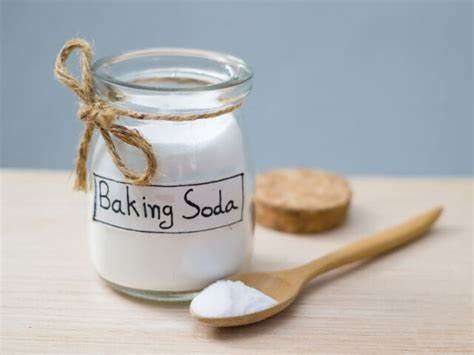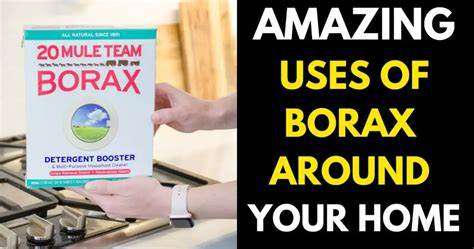Discover effective tips for restoring the sparkle to your glass shower doors.
Glass shower doors come with their own set of advantages and disadvantages, and dealing with soap scum can be a deterrent for homeowners. My shower door is the original one from my 1951 home, with a vintage charm compared to modern all-glass shower doors. Despite its unique features, such as an etched swan, I’ve successfully prevented the buildup of soap scum.
Notice how I mentioned “keep soap scum at bay” instead of “keep soap scum away.” Soap residue is a natural part of life, and understanding how to manage it is just as crucial as knowing how to clean it.
Understanding Soap Scum: What is it?
Soap scum, also known as lime soap, is a chalky white residue composed of calcium stearate and magnesium stearate, among other materials. It forms when these substances react with hard water.
Causes of Soap Scum: Unveiling the Culprit
The annoying scum that we’ve all encountered is a result of the paraffin wax in soap reacting to hard water.
While our experiences with soap scum may vary based on water quality and bathing preferences, it’s something most of us contend with on glass shower doors, tiles, vinyl shower curtains, and in the bathtub.
It tends to be most noticeable on glass surfaces.
Effective Ways to Remove Soap Scum
DIY Soap Scum Remover for Your Bathroom
Materials:
- 1 cup Distilled White Vinegar
- 1 tbsp Corn Starch
- 2 tbsp Dawn Dish Detergent
Instructions:
- Mix Vinegar and Corn Starch: In a microwave-safe container (a glass measuring cup works well), combine the distilled white vinegar and corn starch. Microwave the mixture for 2 minutes.
- Add Dawn Detergent: Once the vinegar and corn starch have heated, carefully add 2 tablespoons of Dawn dish detergent to the mixture. Avoid adding Dawn before heating, as it will foam and could spill over when heated.
- Prepare for Cleaning: Pour the mixture into an empty spray bottle. Shake gently to combine.
- Apply to Surfaces: Liberally spray the solution onto your shower’s glass doors, fiberglass walls, and the bottom pan. Be sure to cover all areas affected by soap scum.
- Wait and Ventilate: Set a timer for 10 minutes. Although the ingredients are natural, the vinegar and Dawn may create a strong scent, so make sure to turn on the bathroom exhaust fan during this time for better ventilation.
- Scrub and Rinse: After 10 minutes, use a sponge to gently scrub the floor and glass walls. The soap scum should come off easily. Rinse the surfaces using the showerhead or a spray bottle filled with water.
- Dry the Surfaces: To avoid streaks, finish by drying all the cleaned areas with a clean towel.
1. Cleaning with Vinegar:
- Mix equal parts white vinegar and grease-fighting dish soap in a spray bottle.
- Spritz the solution onto the glass door, close it, and let it sit for 20-30 minutes.
- Afterward, use a cloth to hand scrub the surface and ensure it’s completely dry.
2. Cleaning with Ammonia:
- Wear rubber gloves and ventilate the bathroom.
- In a spray bottle, combine 1 part ammonia with 3 parts water.
- Mist the soap scum surface and, while it’s still wet, use a coarse scrub brush to agitate and loosen the soap scum.
- Rinse the surface thoroughly, allowing the ammonia solution to drain away. Ensure it dries completely.
Important Note: Avoid combining vinegar or ammonia with chlorine-based bleach simultaneously, as the fumes can create a toxic environment.
3. Cleaning with Borax or Baking Soda:
- Create a paste by mixing either borax or baking soda with water.
- Apply the paste with a damp sponge onto the glass surface to loosen the soap scum.
- Rinse the surface and dry it completely.
These methods provide natural and effective ways to tackle soap scum on your glass surfaces, ensuring a clean and sparkling bathroom.
Tips for a Soap Scum-Free Shower
- Convenient Daily Scrub:
- Keep a spray bottle in your shower stall for quick access.
- Give the glass a brief scrub after each shower use.
- Use the running water to rinse the glass and ensure it’s completely dry.
- Choose Liquid Soap or Body Wash:
- Opt for liquid soap or body wash over a bar of soap.
- Liquid soap is more diluted, making it easier to rinse off.
- Its interaction with hard water differs from solid soap.
- Avoid Oily Products:
- Steer clear of oily products like certain conditioners.
- If you must use them, be diligent about cleaning the shower regularly.
- Establish Drying Habits:
- Make it a routine to dry the shower after each use.
- A squeegee can simplify the drying process.
- Keep an old towel nearby to wipe shower walls and prevent buildup.
- Encourage Airflow:
- Leave the shower door open to enhance airflow and minimize moisture.
- Address Hard Water:
- Explore ways to soften your hard water, reducing its impact on soap scum buildup.



